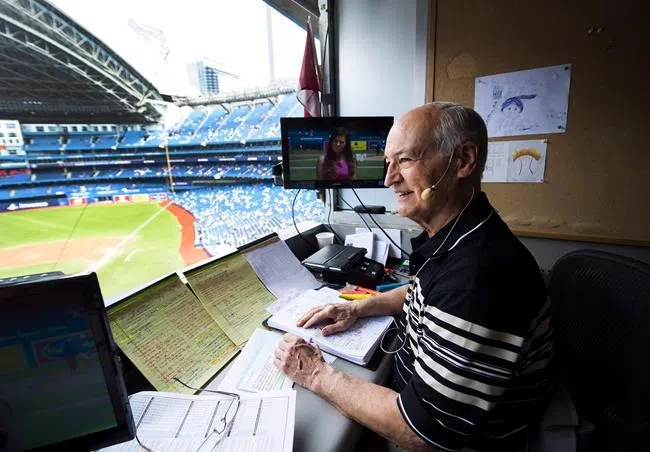
Longtime Blue Jays broadcaster Jerry Howarth at peace with retirement decision
TORONTO — Before a recent Blue Jays game, Jerry Howarth strolled onto the turf at Rogers Centre, walked down the side of the diamond and held a long glance out at the field.
The venue still feels like home for the longtime broadcaster, who retired last February after 36 years with the team.
“For years, every now and then, once or twice a season, I would purposely go down by myself somewhere in the ballpark and hope nobody found me,” Howarth said. “It was just to reflect upon my blessings, the ballpark I was in, the career that I’ve had, the opportunity to call games.
“Then by quiet reflection, I could think about where my career had taken me up until that particular point because sometimes we forget in the quickness of the moment to do that. Enjoy the moment.”